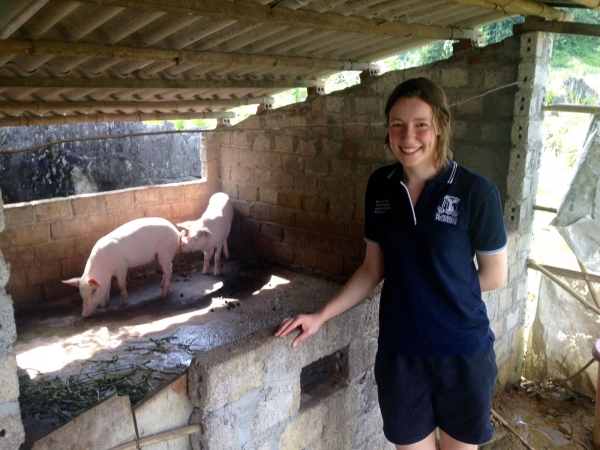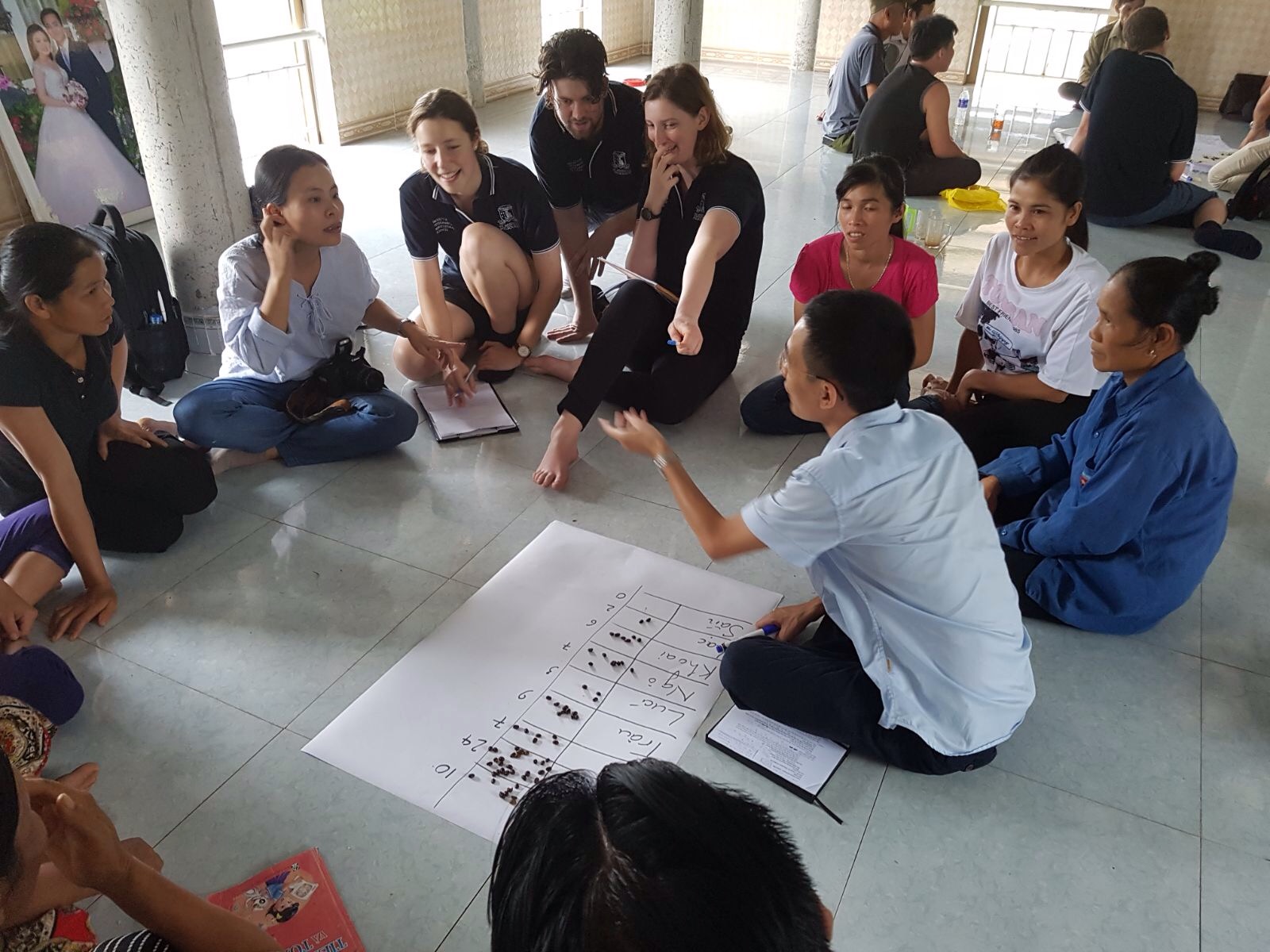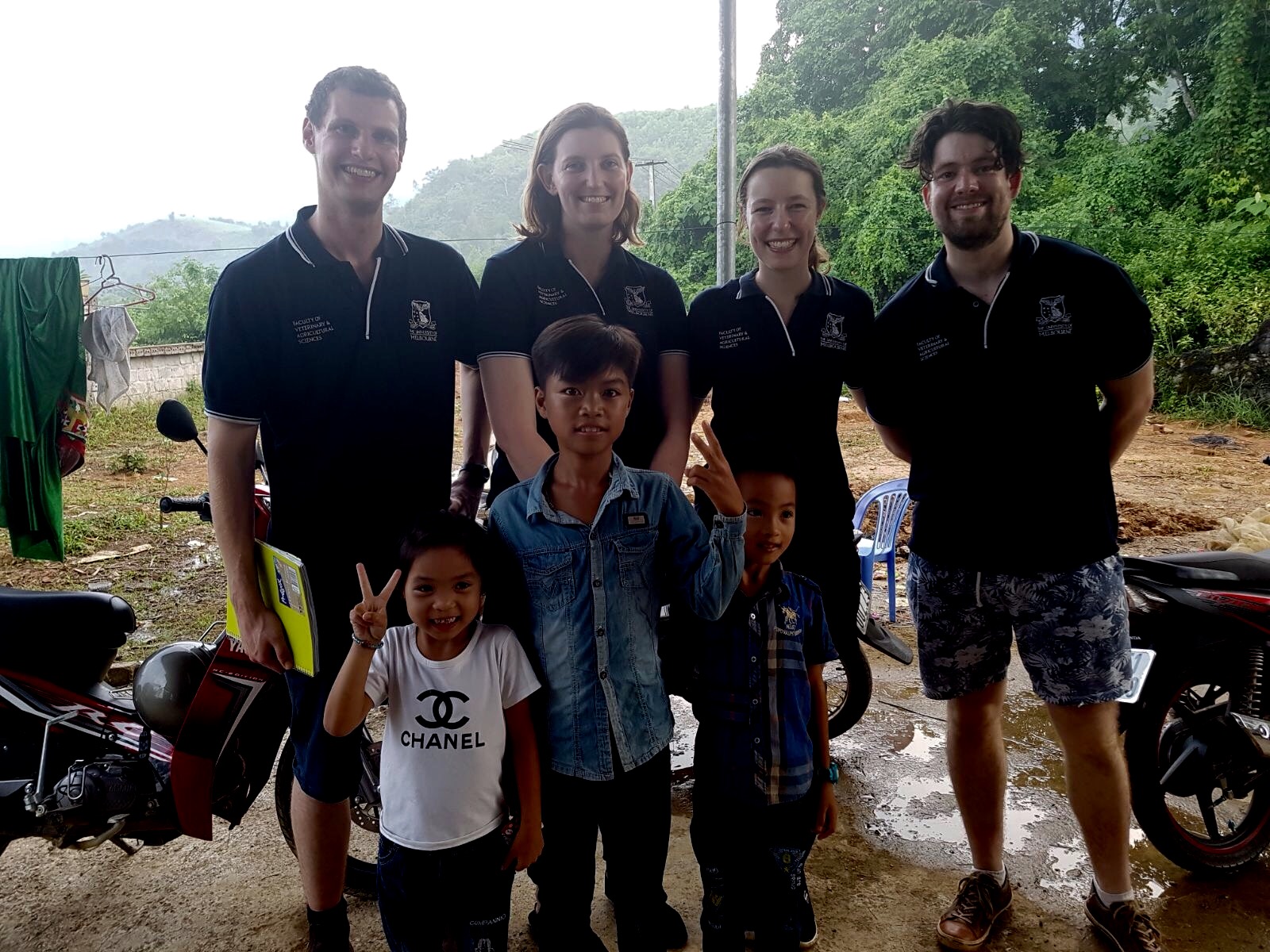Asia-Bound: Safer pork in Vietnam

Written by final year Veterianry Students (University of Melbourne); Samuel Duck and Madeleine Rowe (pictured)
As final year Doctor of Veterinary Medicine students, you are afforded great opportunities to embed yourself in an array of exciting placements. As we met in the sticky evening heat of Hanoi, we could see a new and extraordinary experience lay before us.
As fortunate recipients of an Asia-Bound grant led by Dr David McGill, we were hosted by the International Livestock Research Institute (ILRI) for a two week placement in Northern Vietnam. Our visit coincided with the launch of the SAFEPork Project, a program that aims to improve food safety in pig production systems in Vietnam, involving collaboration between numerous Universities, research partners and stakeholders.
We began by meeting the friendly team at ILRI. Over the next fortnight we would hear from their experts in public health and epidemiology about a variety of topics including One Health, participatory epidemiology and their work in the South-East Asian region.
Beyond the excellent learning opportunities during our stay, we hoped to provide some assistance to ILRI. Our main goals involved planning for a pilot focus group in a small village in Hoa Bihn and a preliminary literature review into food-borne diseases in South East Asia.
Amongst our discussions at ILRI we visited many institutions where we were told of the work being done in Vietnam. From the Australian Embassy to discuss foreign aid projects, to the United Nations Headquarters, where we learned about the role of the Food and Agriculture Organisation in zoonotic disease surveillance and control. We were also hosted by several Universities, including the Hanoi University of Public Health, National Institute for Veterinary Research and the Hanoi Medical University, who each outlined their work in the field of agricultural development and food safety. Not only did we learn a great deal about the exciting work being done in their respective areas of research, but it gave us great access to experts in the field to assist us in our background research into Pork Food Safety for ILRI.

Marguerite Treloar (pointing), Stephen Bennett and Madeleine engaging in a focus group discussion regarding pig rearing and food safety.
Excitingly, we also had a number of trips into the field. Our first excursion followed a presentation about the previous “Pig Risk” project in pork food safety at the Vietnam National University of Agriculture and ended with a tour of two pig farms in nearby villages. We were impressed with the improvements that had been made to the small, family run enterprises – particularly by the capture of biofuels from wastes.
One of our most rewarding days was spent in Hoa Binh province where we had a meeting with the district animal health officer followed by a long, confusing and jovial lunch. We then travelled through the mountains to a small village where we were greeted by a friendly community preparing a small indigenous breed pig for us to eat. With the food preparation complete we began our focus group discussion through translators. The villagers shared information on how they cared for their livestock, their concerns for their livelihoods and perspectives on pig production. We were also able to collect data on their farm size and composition. Once completed, we spent the rest of the afternoon eating and enjoying local customs amongst the Northern Vietnamese mountains to the sound of friendly banter and laughter.

Final year Veterianry Students; Samuel Duck, Madeleine Rowe, Marguerite Treloar and Stephen Bennett with some of the friendly villagers from the community in Hoa Binh.
On our final day, we presented our research to ILRI and reported back on our focus group findings before saying our sad farewells over a lunch banquet.
Overall, the trip was a very novel and valuable experience. We gained insight into the operations of multiple educational and government operations in Vietnam and learned in great detail about the research they are undertaking to try and minimise the incidence of food-borne diseases in Vietnam, particularly illnesses originating from pork. This trip also opened our eyes to the complexity of work in agricultural development and we recommend anyone with access to these types of experiences during their University degree take the opportunity with enthusiasm and an open-mind.
Perhaps most importantly, we learned that progress in this field is made by dedicated people who are very generous with their time and expertise. To the people that shared their knowledge, villages and homes we are truly grateful and are hopeful that these relationships can continue to build in coming years.


